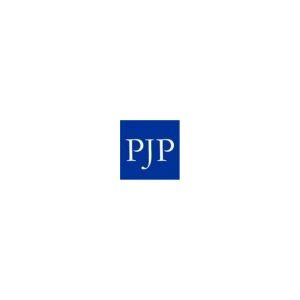Best ADR Mediation & Arbitration Lawyers in Philippines
Share your needs with us, get contacted by law firms.
Free. Takes 2 min.
Or refine your search by selecting a city:
List of the best lawyers in Philippines

Dagsaan Monterde Castillo Law and Notary Public (DMC LAW)
15 minutes Free ConsultationAbout ADR Mediation & Arbitration Law in the Philippines
Alternative Dispute Resolution (ADR) methods, including mediation and arbitration, have become significant components of the Philippine legal system. ADR offers parties a range of techniques aimed at resolving disputes without resorting to litigation, which can often be time-consuming and costly. The Philippines has long recognized the importance of ADR through various statutes, with the cornerstone being the Alternative Dispute Resolution Act of 2004 (Republic Act No. 9285). This law provides the framework for ADR processes and encourages the use of methods like mediation and arbitration to resolve disputes peacefully and efficiently.
Why You May Need a Lawyer
Individuals and businesses may find themselves needing legal assistance in ADR for several reasons. Firstly, crafting or negotiating an effective dispute resolution clause in contracts often requires legal expertise. In case a dispute arises, having a lawyer can benefit parties by ensuring that the ADR process is conducted smoothly and in compliance with the governing laws. Furthermore, lawyers can provide strategic advice, represent clients in arbitration panels, or mediate sessions, ensuring that their client's interests are robustly represented. Additionally, legal guidance can be indispensable when an award from arbitration needs to be enforced or challenged, especially in complex or significant claims.
Local Laws Overview
The key piece of legislation governing ADR in the Philippines is the Alternative Dispute Resolution Act of 2004. This Act establishes policies for the use of ADR and is complemented by various procedural rules from the Supreme Court. Significant provisions address the enforceability of ADR agreements, confidentiality of proceedings, and the role of courts in recognizing and enforcing arbitral awards. Additionally, international arbitration conducted under recognized arbitration institutions is generally observed and enforced, showcasing the Philippines' alignment with global ADR practices.
Frequently Asked Questions
What is the difference between mediation and arbitration?
Mediation is a non-binding process where a neutral third party helps the disputing parties reach a mutually acceptable solution. Arbitration, on the other hand, involves a neutral third party who listens to both sides and makes a binding decision.
Are ADR decisions enforceable in the Philippines?
Generally, arbitration awards are enforceable in the Philippines and have the court's backing under certain conditions, while mediated agreements may require enforcement through the courts if a party fails to comply.
Can I choose my mediator or arbitrator?
Yes, parties can agree on selecting a mediator or arbitrator. If they cannot agree, an appointing authority specified in the ADR clause or an institution can appoint one.
How long does an ADR process take?
The duration of ADR processes varies depending on the complexity of the dispute and the cooperation between parties. Mediation can often be resolved in weeks, while arbitration might take several months.
Is ADR cheaper than going to court?
ADR is typically more cost-effective than litigation due to reduced administrative costs, fewer procedural requirements, and a quicker resolution timeline.
Can I use ADR for all types of disputes?
While ADR is suitable for many disputes, some matters, such as criminal cases or certain family law matters, may not be appropriate for ADR processes.
What is the confidentiality rule in ADR?
ADR proceedings are generally confidential; the details discussed or any agreed terms are not disclosed without the parties’ consent, fostering a private resolution environment.
Do I need a lawyer to represent me in ADR?
While having a lawyer is not mandatory in ADR, legal representation can be advantageous, ensuring that your rights and interests are well-protected throughout the process.
Can I challenge an arbitral award?
Yes, although challenging an arbitral award is limited to specific grounds like fraud, corruption, or a breach of due process, among others.
How do I enforce an ADR agreement?
Enforcement typically requires filing an application with the competent court, where the agreement or award may be recognized as enforceable in line with the ADR Act.
Additional Resources
Several organizations offer support and information regarding ADR in the Philippines. The Philippine Dispute Resolution Center, Inc. (PDRCI), provides services and expertise in arbitration and mediation. The Integrated Bar of the Philippines offers assistance and a directory of lawyers specializing in ADR. Government agencies like the Department of Justice offer guidance on ADR procedures and policies.
Next Steps
If you require legal assistance in ADR mediation or arbitration, consider consulting with an attorney who specializes in this field to explore your legal options and rights. Preparing a list of questions and documents related to your dispute can aid in this process. Many law firms offer consultations that can provide initial guidance on how to proceed effectively. It's crucial to select a lawyer who is well-versed in both local and international ADR practices to represent your interests adequately.
Lawzana helps you find the best lawyers and law firms in Philippines through a curated and pre-screened list of qualified legal professionals. Our platform offers rankings and detailed profiles of attorneys and law firms, allowing you to compare based on practice areas, including ADR Mediation & Arbitration , experience, and client feedback.
Each profile includes a description of the firm's areas of practice, client reviews, team members and partners, year of establishment, spoken languages, office locations, contact information, social media presence, and any published articles or resources. Most firms on our platform speak English and are experienced in both local and international legal matters.
Get a quote from top-rated law firms in Philippines — quickly, securely, and without unnecessary hassle.
Disclaimer:
The information provided on this page is for general informational purposes only and does not constitute legal advice. While we strive to ensure the accuracy and relevance of the content, legal information may change over time, and interpretations of the law can vary. You should always consult with a qualified legal professional for advice specific to your situation.
We disclaim all liability for actions taken or not taken based on the content of this page. If you believe any information is incorrect or outdated, please contact us, and we will review and update it where appropriate.
Browse adr mediation & arbitration law firms by city in Philippines
Refine your search by selecting a city.















